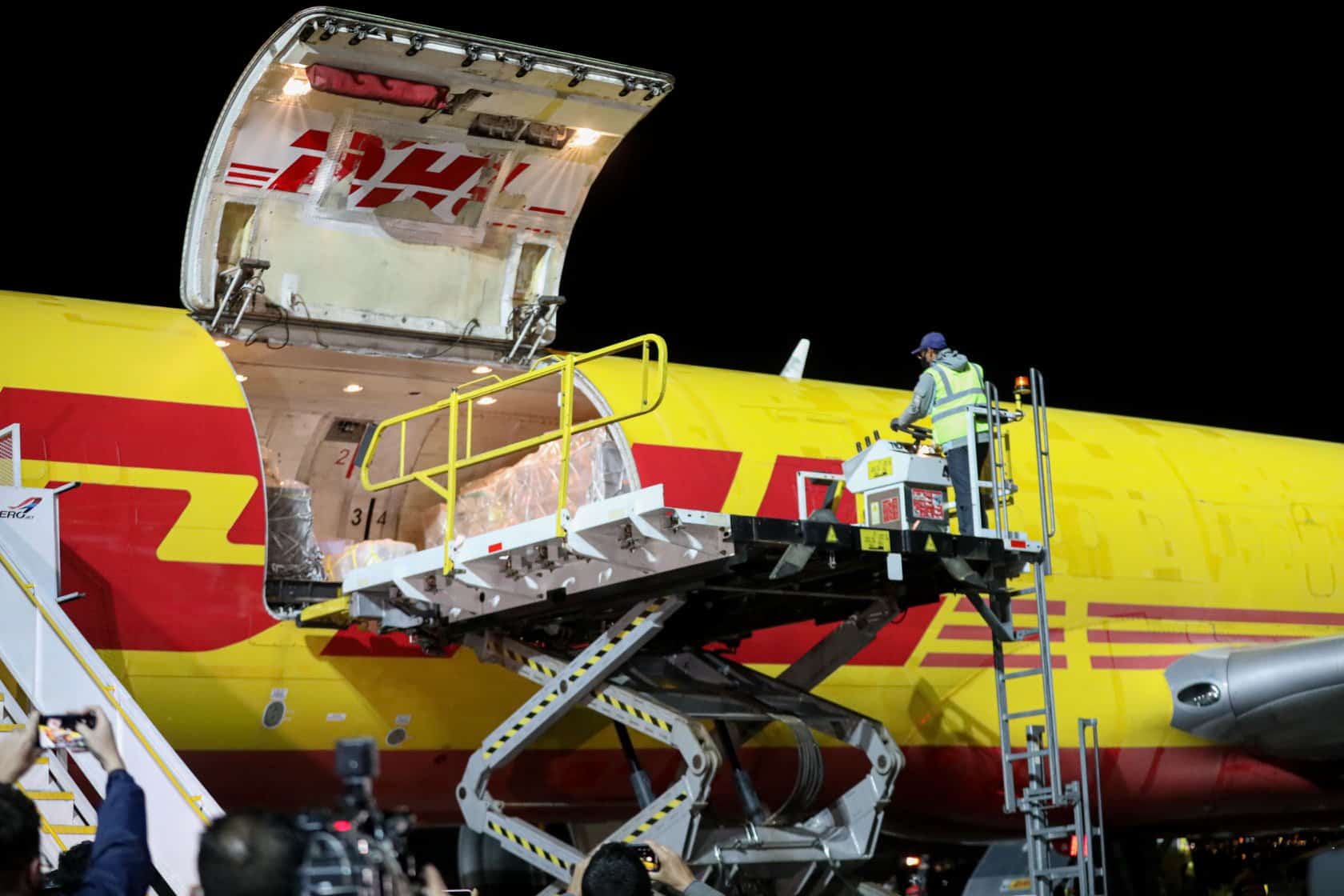Costa Rica received 52,650 Covid-19 vaccines this week and has now imported nearly 2.85 million total doses.
The batch of Pfizer/BioNTech doses arrived to Juan Santamaría International Airport on Thursday night. After passing quality control checks, they will be included in Costa Rica’s national vaccination campaign against Covid-19.
To date, Costa Rica has received 2,847,435 vaccine doses from Pfizer, AstraZeneca and through the Covax facility. The majority (more than 2.25 million) have come directly from Pfizer.
Costa Rica has purchased 9 million doses, meaning it has received just over 30% of its total allotment. The Presidency says more than 2.5 million more doses will arrive in the third quarter of 2021 (between July and September), and donations from other countries could push that figure higher.
Costa Rica has administered 2.52 million vaccine doses, or 48.8 per 100 residents. This represents the highest vaccination rate in Central America, alongside El Salvador, though it’s well behind the United States (100) and Canada (110).
More than 1.7 million Costa Rican citizens and residents have received at least one injection, representing one-third of the country’s population.
Costa Rica’s vaccine priority is as follows:
- First group: Staff and residents at retirement or nursing homes. First responders, including health personnel.
- Second group: Costa Rica’s older population, defined here as those ages 58 and up. According to the Presidency, this group is required to demonstrate residency with a cédula or DIMEX.
- Third group: People from 12-58 with risk factors, including hypertension, diabetes, heart disease, respiratory illness, kidney disease and obesity, among others.
- Fourth group: Teachers and other staff within the Education Ministry (MEP) or private schools. Imprisoned people and judicial staff. Workers for the 911 service.
- Fifth group: Health science students and related technicians in clinical fields. People ages 40-57 without any of the aforementioned risk factors but whose work puts them in contact with others. Then, all remaining adults and children ages 12 years and older.
Vaccine administrations are coordinated by EBAIS, which are public-health clinics. Each EBAIS manages a list of people who live in their jurisdiction. This list is used to identify priority individuals and to schedule their vaccine appointments.
Some EBAIS are vaccinating all eligible people, the Presidency says, though the vast majority are only inoculating Groups 1, 2 and 3.
Costa Rica hopes to expand vaccine eligibility to all residents ages 12 and older at the end of July.
If you are in one of the top-three priority groups, contact your local EBAIS to make sure they have your information. For EBAIS contact information, click here.






